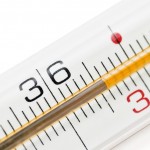 A meta-analysis including nearly 1.3 million children posted online last week in the journal Vaccine has demonstrated, once again, that there’s no causal link between vaccines and autism.
A meta-analysis including nearly 1.3 million children posted online last week in the journal Vaccine has demonstrated, once again, that there’s no causal link between vaccines and autism.
The paper is an online “uncorrected proof.” That means it has already been through peer review and has been accepted, but there could still be a few tweaks to fix typos and such. From the abstract:
Findings of this meta-analysis suggest that vaccinations are not associated with the development of autism or autism spectrum disorder. Furthermore, the components of the vaccines (thimerosal or mercury) or multiple vaccines (MMR) are not associated with the development of autism or autism spectrum disorder.
The bullet-points provided by the authors in the paper’s “highlights” section are remarkably straightforward:
- Five cohort studies involving 1,256,407 children and five case-control studies involving 9920 children were included in this analysis.
- There was no relationship between vaccination and autism (OR: 0.99; 95% CI: 0.92 to 1.06).
- There was no relationship between vaccination and ASD [autism spectrum disorder] (OR: 0.91; 95% CI: 0.68 to 1.20).
- There was no relationship between [autism/ASD] and MMR (OR: 0.84; 95% CI: 0.70 to 1.01).
- There was no relationship between [autism/ASD] and thimerosal (OR: 1.00; 95% CI: 0.77 to 1.31).
- There was no relationship between [autism/ASD] and mercury (Hg) (OR: 1.00; 95% CI: 0.93 to 1.07).
- Findings of this meta-analysis suggest that vaccinations are not associated with the development of autism or autism spectrum disorder.
The OR there is the “odds ratio.” Emily Willingham explains at Forbes:
“It’s not that we didn’t know that already. But a meta-analysis takes the existing research and grinds the numbers and gives the bigger picture of what the aggregate of the findings tells us. Indeed, looking a the odds ratios the authors report–in which 1 means no effect of vaccine or other variable on odds and less than 1 means reduced odds–the data suggest reduced autism risk among children who received the MMR vaccine.”
The most interesting part may be an “Epilogue,” written by one of the study’s three authors.
“As an epidemiologist I believe the data that is presented in this meta-analysis. However, as a parent of three children I have some understanding of the fears associated with reactions and effects of vaccines. My first two children have had febrile seizures after routine vaccinations, one of them a serious event. These events did not stop me from vaccinating my third child, however, I did take some proactive measures to reduce the risk of similar adverse effects. I vaccinated my child in the morning so that we were aware if [sic] any early adverse reaction during the day and I also gave my child a dose of paracetamol 30 min before the vaccination was given to reduce any fever that might develop after the injection. As a parent I know my children better than anyone and I equate their seizures to the effects of the vaccination by increasing their body temperature. For parents who do notice a significant change in their child’s cognitive function and behaviour after a vaccination I encourage you to report these events immediately to your family physician and to the ‘Vaccine Adverse Event Reporting System’.”
So there you have it. 1,266,327 more data points that vaccines do not cause autism or autism spectrum disorder.
Source: animals.io9.com

















